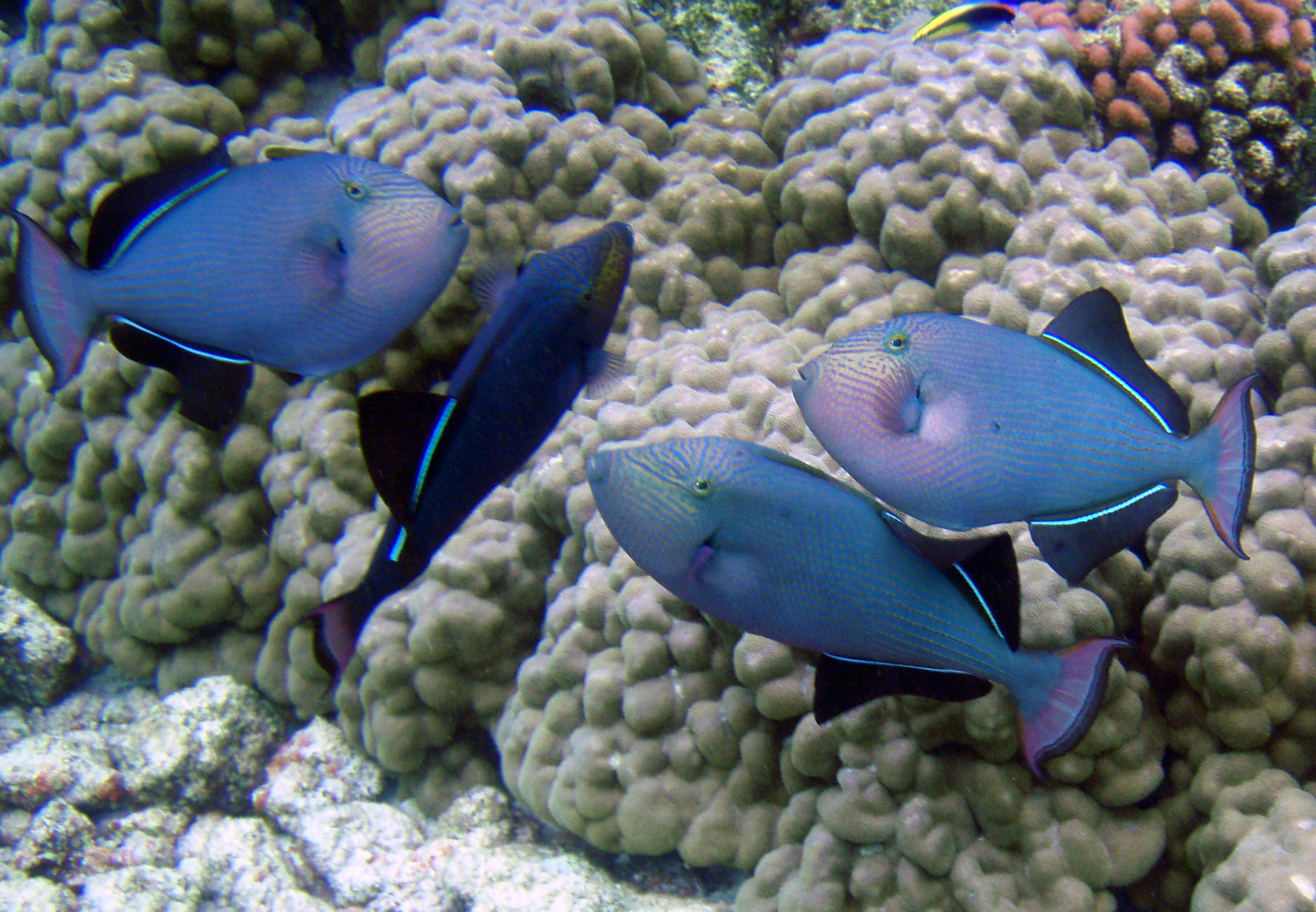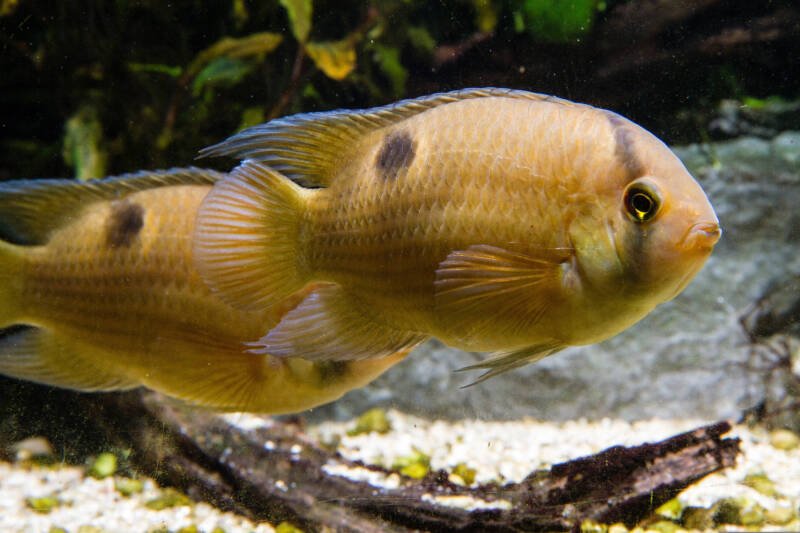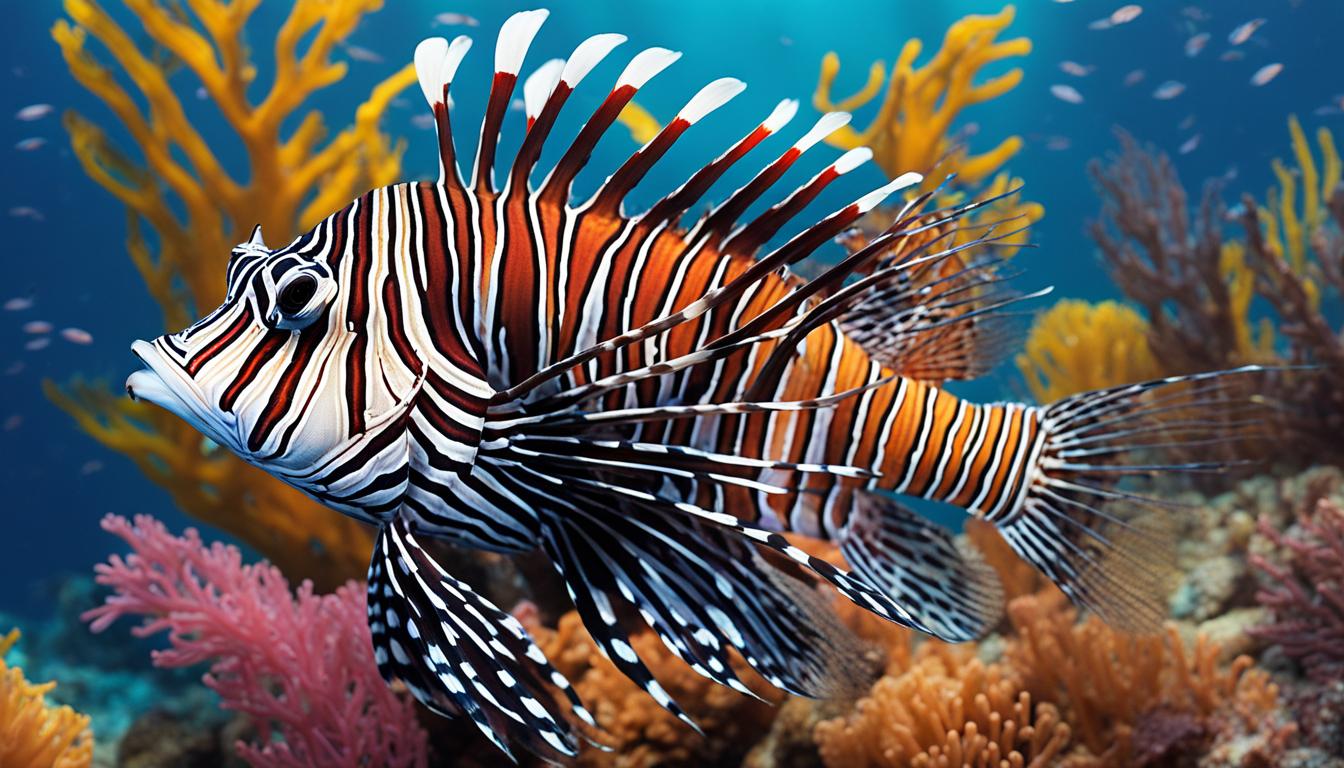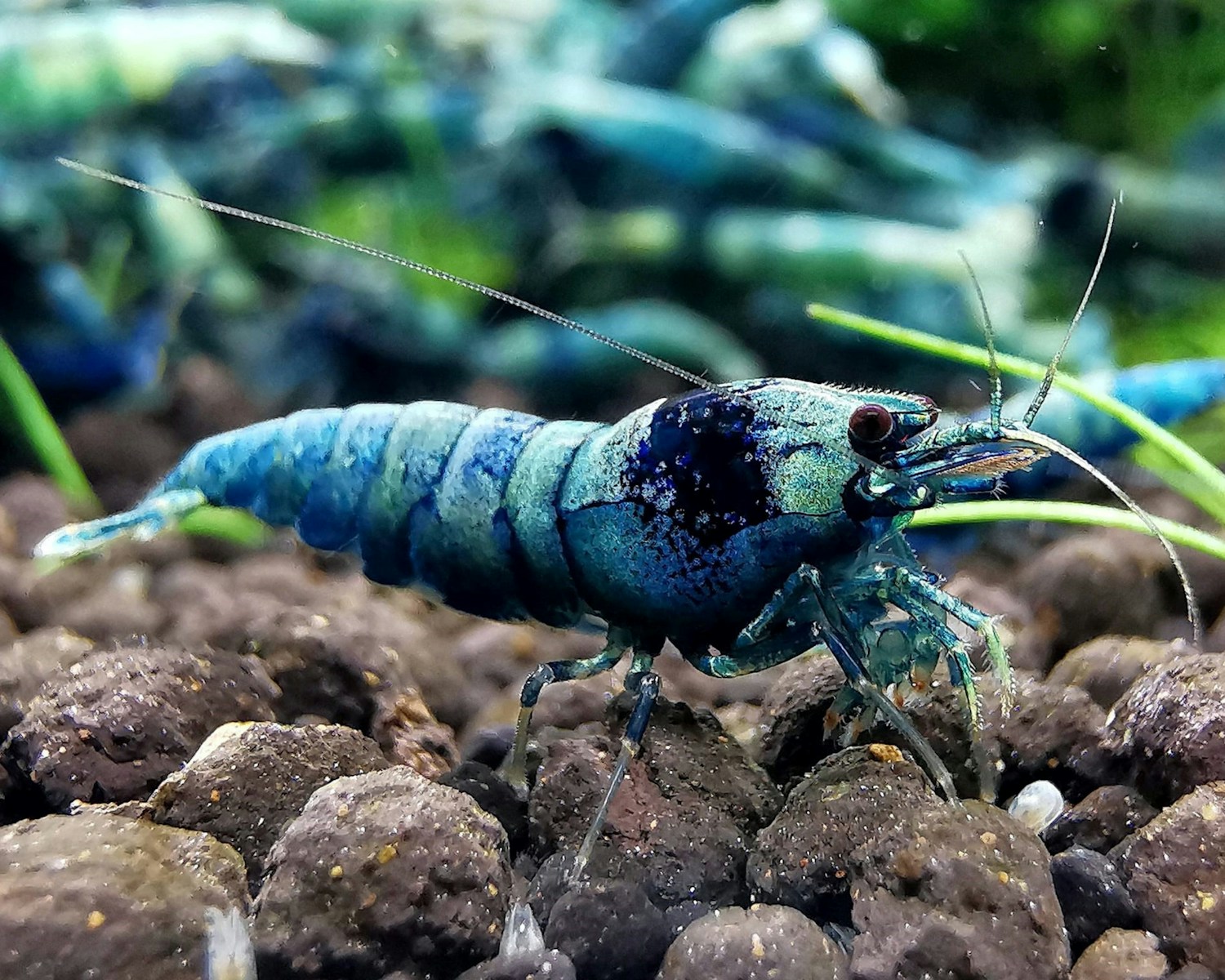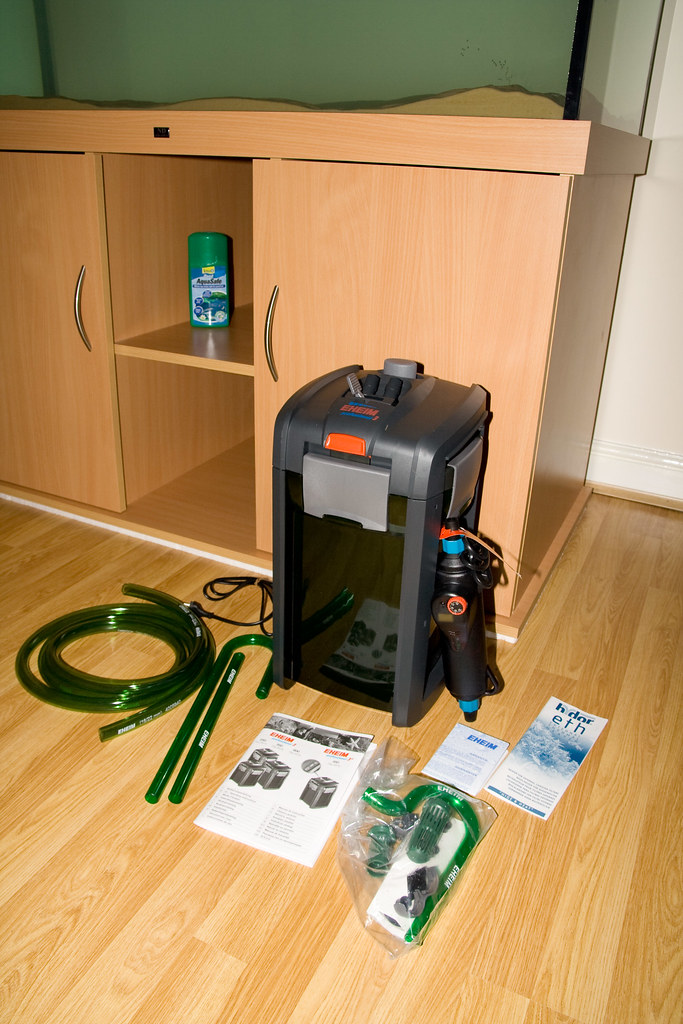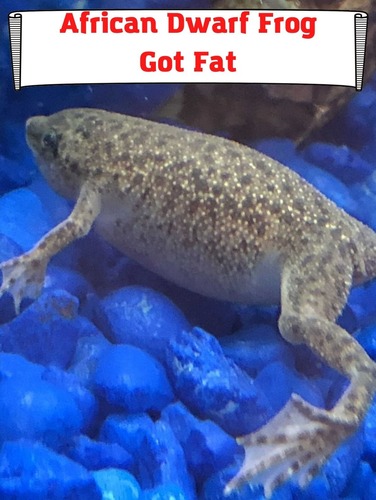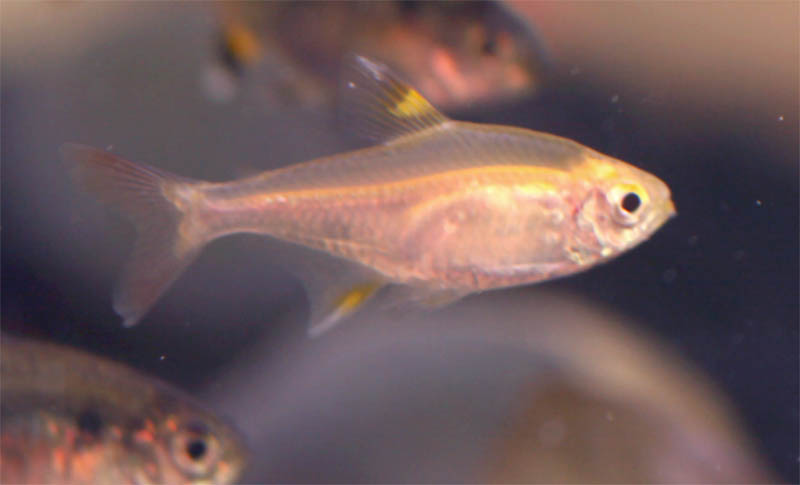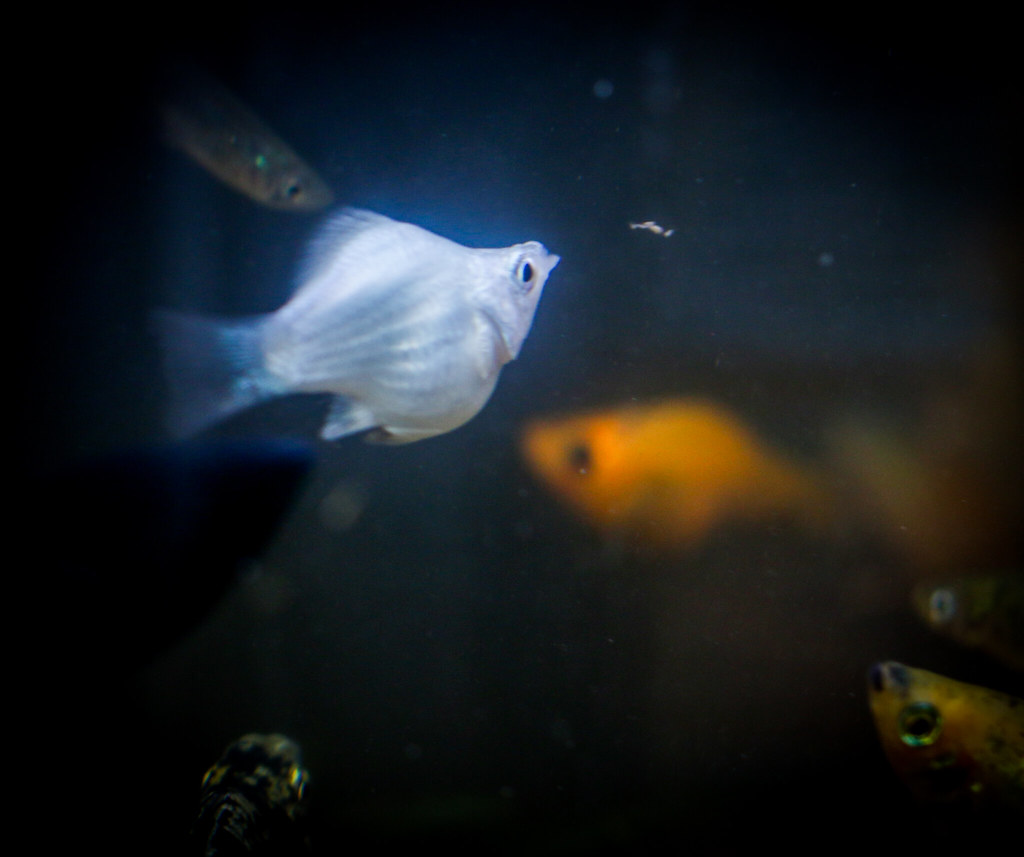Did you know the Niger Triggerfish can grow up to 18 inches long? This vibrant gem is a true marvel of marine life. As someone who loves saltwater aquarium fish, I find the ocean’s diversity amazing. The Niger Triggerfish, with its dark-blue-to-black body and blue jaws, is a standout in the underwater world.
In the wild, they can reach 16 inches, showing their impressive size. They can also live over a decade in good aquariums. This makes them a prized catch for marine enthusiasts.
Exploring triggerfish, I’m constantly amazed by their unique traits. The Niger Triggerfish, also known as the Black Triggerfish or Redtooth Triggerfish, is part of the Balistidae family. This family has 40 diverse species. Their colors range from deep blues to radiant purples, making them a stunning sight in any aquarium.
Table of Contents
Key Takeaways
- Niger Triggerfish can grow up to 18 inches in length
- They can live over a decade in well-maintained aquariums
- Known for their striking dark-blue-to-black body and blue jaws
- Part of the Balistidae family, which includes 40 triggerfish species
- Require a spacious tank of at least 180 gallons
- Display vibrant colors ranging from deep blues to radiant purples
Understanding the Niger Triggerfish
I’ve grown to love the Niger triggerfish. It’s a standout among marine life with its unique looks and bright colors.
Physical Characteristics and Size
The Niger trigger has an oval body that can reach 20 inches long. They need a big space, with tanks of at least 75 gallons for young ones and 180 gallons for adults.
Distinctive Features and Coloration
The Niger triggerfish can change colors. I’ve seen them turn from deep purples to vibrant blues and striking blue-greens. This makes them a stunning addition to any aquarium.
Lifespan and Growth Patterns
Niger triggerfish can live over 10 years with the right care. They grow slowly, reaching their full size in a well-kept aquarium. They need a diet rich in meat, eating 2-3 times a day.
| Size Category | Price (USD) |
|---|---|
| Small | $59.99 |
| Medium | $48.99 |
| Large | $129.99 |
| X-Large | $199.99 |
| XX-Large | $249.99 |
Natural Habitat and Distribution
I’ve explored the fascinating world of Niger Triggerfish, a vibrant species that plays a key role in ocean biodiversity. These coral reef inhabitants thrive in the warm waters of the Indo-Pacific region. They can be found from the Red Sea to the Society Islands.
Their natural habitat spans from southern Japan to the Great Barrier Reef, covering vast areas of Micronesia. Niger Triggerfish prefer depths between 3 to 55 meters, typically found over outer reef slopes. They’re well-adapted to current-swept seaward coral reefs, contributing to the rich tapestry of marine life in these ecosystems.
The species’ distribution covers a tropical region between 32°N – 24°S and 30°E – 137°W. This shows their preference for warm, clear waters.
In their natural environment, these fish can grow up to 50 cm in total length, with a common length of 30 cm. They’re reef-associated marine species, playing a vital role in maintaining the balance of coral reef ecosystems. Their presence contributes significantly to the ocean biodiversity, as they interact with various other species in their habitat.
Interestingly, a non-native occurrence of the Niger Triggerfish was observed in Florida’s Intracoastal Waterway in 2021, likely due to aquarium release. This highlights the importance of responsible pet ownership and the impact on local ecosystems when non-native species are introduced.
Behavior and Intelligence in the Wild
Triggerfish behavior is fascinating and complex in the vast ocean. I’ve seen these creatures show intelligent actions that shape their lives. Their daily actions in the ocean are truly remarkable.
Territorial Nature
Triggerfish are very territorial, even more so during breeding seasons. Some, like the Picasso and titan triggerfish, fight hard to protect their nests. They even defend against divers and snorkelers who get too close.
Hunting and Feeding Patterns
Triggerfish diets vary, showing their adaptability. They mostly eat slow-moving creatures like crustaceans and sea urchins. Some, like the Red-toothed triggerfish, eat plankton. Their strong jaws help them hunt well in the ocean.
Social Interactions
Triggerfish are usually alone but show interesting social behaviors during mating. Males create territories for spawning, with some species mating with many females. For example, the Red-toothed triggerfish can mate with over 10 females in a day.
Spawning happens before full moons and new moons. These behaviors show triggerfish intelligence. They learn, adapt, and coordinate complex mating rituals. Their territorial instinct, varied diets, and social interactions make them fascinating to study.
The Unique Defense Mechanisms

The Niger Triggerfish is a true marvel of nature. It’s not venomous but has amazing defense features. These make it a strong presence in its underwater world.
Dorsal Fin Locking System
The Niger Triggerfish has a clever dorsal fin locking system. It has three spines that can lock into place. When threatened, it can hide in tight spots and stay safe.
This system not only protects it but also lets it rest without being swept away by currents.
Powerful Jaw Structure
The Niger Triggerfish also has a strong jaw. Its teeth and muscles are powerful, letting it open hard shells easily. This helps it find food and defend itself from predators.
Research shows the Niger Triggerfish can grow up to 12 inches. It needs a tank of at least 80 gallons. Its jaws and dorsal fin make it a species to be respected.
Lunar Spawning Patterns
I’ve seen amazing things about Niger Triggerfish and their lunar-linked spawning. These colorful fish, part of the Balistidae family, know exactly when to reproduce. They lay eggs a few days before the full and new moons, following nature’s beat.
Their spawning starts when the sun goes down. This isn’t a coincidence. It’s a clever move. By spawning before the spring tides, they keep their eggs safe from strong currents. This shows how closely marine life is tied to the moon’s cycles.
In aquaculture, knowing about these patterns is key. It helps in breeding and saving these fish. The Niger Triggerfish’s lunar-synced spawning is just one example of the complex behaviors in our oceans. It highlights the importance of keeping these natural rhythms alive.
- Spawning occurs 2-6 days before full moon
- Additional spawning 3-5 days before new moon
- Process typically starts around sunset
- Timing linked to spring tides for egg protection
Aquarium Care Requirements
Keeping Niger Triggerfish in a saltwater aquarium is a big responsibility. They need the right conditions to live well in captivity.
Tank Size and Setup
Niger Triggerfish need a lot of space. I suggest a tank of at least 180 gallons for one fish. This lets them swim and act naturally. The tank should have lots of rocks and caves for them to hide in.
Water Parameters
Keeping the water stable is vital for these fish. I keep the temperature between 72-78°F and the pH at 8.1-8.4. The salinity should be 1.020-1.025. It’s important to check the levels of ammonia, nitrite, and nitrate often.
Filtration Needs
Good filtration is key for Niger Triggerfish. I use a top-notch filtration system to keep the water clean. Regular water changes and watching the water parameters closely help keep them healthy. Remember, these fish aren’t safe for reef tanks, so they’re best in fish-only or FOWLR setups.
| Parameter | Ideal Range |
|---|---|
| Temperature | 72-78°F (22-26°C) |
| pH | 8.1-8.4 |
| Salinity | 1.020-1.025 |
| Minimum Tank Size | 180 gallons |
Diet and Nutrition
Feeding Niger Triggerfish is key in aquaculture and marine life care. These vibrant creatures do well on a varied diet that matches their natural food choices. In the wild, they eat small invertebrates, crustaceans, and algae.
Natural Food Preferences
Niger Triggerfish are meat-eaters with a big appetite. They enjoy foods like chopped shrimp, squid, clams, and small fish. In their natural home, they use their strong jaws to crack open crustaceans and mollusks.
Captive Feeding Guidelines
To keep them healthy in captivity, I feed Niger Triggerfish 2-3 times a day. Their diet includes:
- High-quality meaty foods (mysis shrimp, shrimp silversides)
- Flake food and pellets
- Algae-based frozen cubes
To keep them strong and colorful, I soak their food in vitamins or healthy oils. This is important for their health and color.
Good nutrition is linked to the right tank conditions. I keep my Niger Triggerfish in a 125-gallon tank with rocks and places to hide. The water is between 72-78°F, with a pH of 8.1-8.4 and salinity of 1.020-1.025.
These fish can grow up to 20 inches. So, regular tank cleaning and good filtration are vital for their health.
Compatibility with Other Species

Niger Triggerfish can be challenging to keep with other fish. Their aggressive behavior often causes conflicts. Adult Niger Triggerfish can grow up to 12 inches, needing a tank of at least 180 gallons.
Choosing larger, robust fish as tank mates is best. Koran Angelfish, Kole Yellow Eye Tang, and Blue Spotted Puffer are good choices. These fish can handle the Niger Triggerfish’s bold nature.
Niger Triggerfish are not safe for reefs. Their hunting instincts and strong jaws can harm coral and small fish. Careful planning and watching are essential when adding new fish to a tank with Niger Triggerfish.
| Compatibility Factor | Niger Triggerfish | Other Triggerfish Species |
|---|---|---|
| Reef Safe | No | Some (e.g., Xanthichthys genus) |
| Aggression Level | High | Varies (e.g., Humu triggers – milder) |
| Minimum Tank Size | 180 gallons | 90 gallons (for smaller species) |
| Suitable Tank Mates | Large, robust species | Depends on individual species |
The environment affects Niger Triggerfish behavior. Giving them enough space, proper food, and the right tank mates can reduce aggression. This helps create a peaceful aquarium.
Health and Common Issues
Keeping Niger Triggerfish healthy is a big responsibility. These exotic pets can get sick in captivity. Let’s look at some common problems and how to fix them.
Disease Prevention
Preventing diseases starts with clean water. I keep nitrate levels around 20 ppm. Regular water changes and good filters are key.
I also make sure they eat well. I feed them twice a day, so they can eat everything in minutes.
Stress Management
Stress is bad for Niger Triggerfish. I keep the water between 74 to 78°F (23 to 26°C). This helps them stay calm.
If they stop swimming or eating, I raise the tank temperature a bit. This often helps them feel better.
Regular Health Monitoring
I check my Niger Triggerfish’s health often. Catching problems early is important. If I see something wrong, I talk to marine experts.
Once, my triggerfish got sick. I moved it to a 1200-liter tank for treatment. This helped a lot in keeping them healthy.
FAQ
How big can a Niger Triggerfish grow?
What is the lifespan of a Niger Triggerfish in captivity?
Where are Niger Triggerfish commonly found in the wild?
What is unique about the Niger Triggerfish’s defense mechanism?
How do Niger Triggerfish time their spawning?
What size aquarium do Niger Triggerfish need?
What should be included in a Niger Triggerfish’s diet in captivity?
Are Niger Triggerfish compatible with other fish species?
What are common health issues for Niger Triggerfish?
How intelligent are Niger Triggerfish?
References
International Coral Reef Society (ICRS)
I am a passionate aquarist with over 30 years of hands-on experience in fishkeeping. My journey began at a young age, collecting fish from the wild and learning through experimentation. Specializing in tropical fish, I bring a deep understanding of the hobby to FishKeepingMadeSimple. The site provides honest, detailed reviews of essential products and accessories to help fellow enthusiasts create the best environments for their fish.

